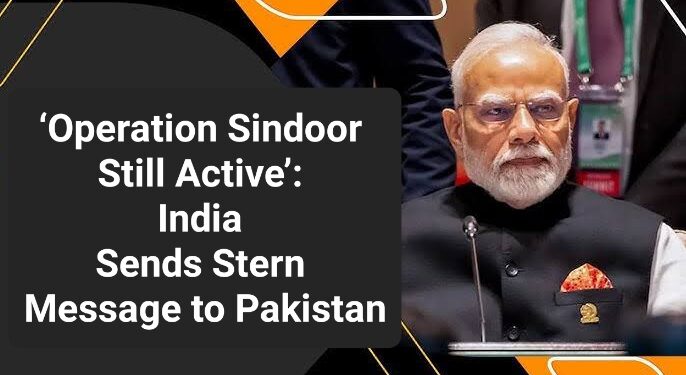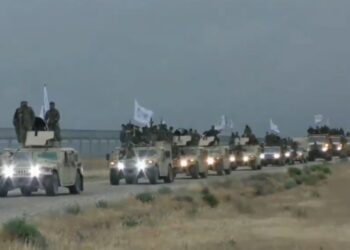Despite the formal ceasefire understanding reached with Pakistan, Indian government sources have confirmed that “Operation Sindoor is not over”, and that the country will respond with force to any further provocations from across the border.
According to officials, the Indian government has adopted a “new normal” in its counterterrorism strategy, particularly after the May 7 strikes on terror infrastructure in Pakistan-occupied Kashmir (PoK) and beyond. The stance is clear:
“If Pakistan fires, India will fire back more forcefully. If Pakistan stops, India will stop.”
This strong position was reinforced during a high-level security meeting chaired by Prime Minister Narendra Modi at his residence on Sunday. The meeting was attended by top national security and military leadership including External Affairs Minister Dr S. Jaishankar, Defence Minister Rajnath Singh, National Security Adviser Ajit Doval, Chief of Defence Staff General Anil Chauhan, and the chiefs of the Army, Navy, and Air Force.
Although a ceasefire agreement was announced at 5:00 PM IST on Saturday, sources revealed that Pakistan violated the understanding shortly afterward. Instances of cross-border shelling and drone activity were reported from Jammu and Kashmir all the way to Gujarat, along the entire India-Pakistan international border.
Authorities confirmed that the situation was brought under control by Sunday morning, but Indian forces remain on maximum alert, under standing orders to respond decisively to any violations.
Government sources emphasized that India will no longer tolerate selective cooperation from Islamabad.
“Pakistan cannot expect to continue sponsoring terrorism and simultaneously expect diplomatic or technical cooperation in areas of its choosing,” said a senior official.
In a significant diplomatic signal, New Delhi has also linked the Indus Waters Treaty to cross-border terrorism.
“The treaty will remain in abeyance as long as Pakistan-sponsored terrorism continues,” the sources said.
India has also made it clear that no political or diplomatic dialogue will be pursued with Pakistan beyond military communication through the Directors General of Military Operations (DGMOs).
“There are no other issues for discussion. Talks will only happen between the DGMOs,” a top official said.
“Operation Sindoor,” launched in response to the deadly Pahalgam terror attack, marked a shift in India’s counterterrorism doctrine. The operation involved precision strikes on terror launchpads, training camps, and communication nodes deep inside PoK and Punjab province, sending a direct message to Islamabad about the costs of terrorism.
With the ceasefire now technically in place but deeply fragile, India’s warning is unambiguous: peace is conditional, and New Delhi will no longer adhere to the old playbook of restraint in the face of provocation.





























